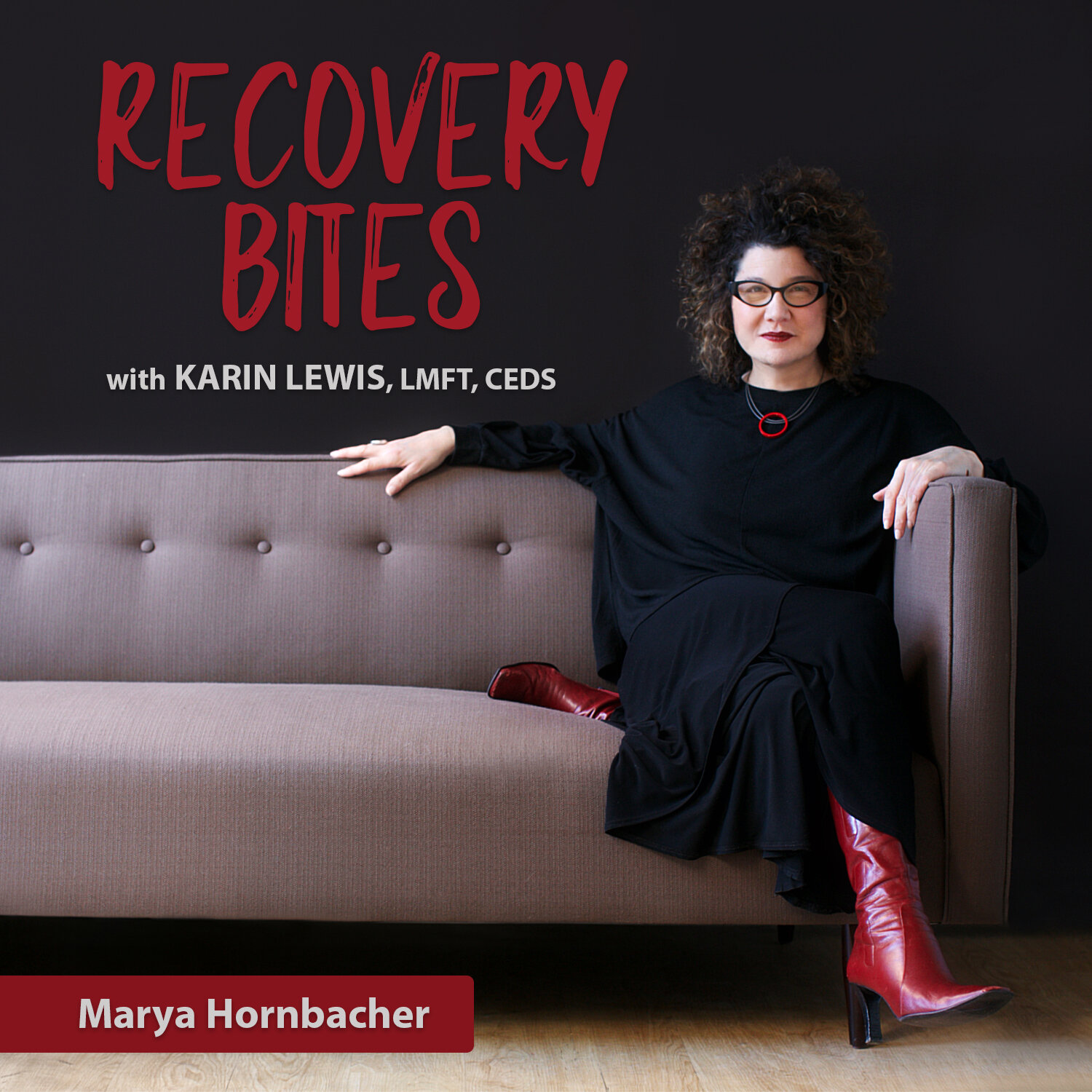Episode 24 - Tutu Thin AND Dancing Around the Issues with Dawn Smith-Theodore, LMFT
by Karin Lewis, MA, LMFT, CEDS
IN THIS EPISODE:
In this episode, I am joined by Dawn Smith-Theodore, LMFT a psychotherapist specializing in the treatment of eating disorders and addictions. Dawn has a private practice in Agoura Hills and Westwood, CA, and she was the Director of Day Treatment Services for Monte Nido and Affiliates. She was the owner of “Carousel” a transitional living home for women with eating disorders and chemical dependency, with her colleague, Terry Eagan, MD. Dawn is also a former professional dancer and owned her own dance studio for 25 years. She is the author of the book, Tutu Thin: A Guide to Dancing Without an Eating Disorder.
SOME OF THE TOPICS DISCUSSED:
The need for perfection, especially with dancers.
Choosing life or choosing an eating disorder.
Finding a balanced life as a dancer.
The importance of education around harmful language that can perpetuate an eating disorder.
How the theme of being “enough” is commonplace in the minds of those with an eating disorder and dancers alike.
The competitive nature of dancers and those with an eating disorder.
How nourishment allows dancers to feel the music and feel their bodies.
ABOUT DAWN SMITH-THEODORE:
Dawn Smith-Theodore, LMFT is a specialist in the treatment of eating disorders. Dawn has a private practice in Agoura Hills and Westwood, CA, and she was the Director of Day Treatment Services for Monte Nido and Affiliates. She was the owner of “Carousel” a transitional living home for women with eating disorders and chemical dependency, with her colleague, Terry Eagan, MD.
Dawn worked for seven years at Monte Nido Residential Treatment Center in Malibu, CA with women suffering from anorexia, bulimia, and exercise addiction. She has worked as a primary therapist as well as a facilitator of the weekly multi-family group, cognitive-behavioral, dance therapy, and creativity groups. She worked for 6 years as an Eating Disorder Consultant for Visions Adolescent Treatment Center in Malibu, where she worked with adolescents who suffer from drug addiction, alcoholism in addition to having an eating disorder. Dawn was the Clinical Director of the Eating Disorder Center of California in Brentwood (Los Angeles) for 5 years.
Dawn appeared on Health Zone with Amy Hendel and Recovery Talk Network as a therapist with a specialty in the eating disorder field. She has also been a guest teacher at Pepperdine University and California State Dominguez Hills. She spoke on a panel about Women’s Issues in Recovery at the Southern California Recovery Summit. Dawn appeared with Tracey Gold in the Lifetime Television show about the treatment of eating disorders entitled Starving Secrets. Dawn is an international speaker having recently spoken to the dance department at Boston Conservatory, The Joffrey Ballet School, Dance Theatre of Harlem, Steps on Broadway, The Washington Ballet, Kirov Ballet Academy, IADMS in Helsinki and Montreal, and the Frank Sinatra School of Performing Arts in New York City. Dawn is recovered from Anorexia Nervosa herself.
In addition to her work as a therapist, Dawn owned and operated her dance studio, A Step in Time School of Dance in Calabasas, CA for 25 years. During her ownership, Dawn has traveled the globe with her students giving them opportunities to perform at such venues as Carnegie Hall, Lincoln Center, Cruise Ships, the Sydney 2000 Olympics, and The Radio City Christmas Show at the Nokia Theatre as well as building self-esteem through performance. Dawn continues to teach dance and is currently working with dance conventions and Ballet companies to educate them about eating disorders and positive body images in the dance world. Dawn believes that education and early intervention with dance educators, young dancers, and parents can help decrease the number of dancers who develop an eating disorder. She is the co-owner of Cross Pointe Dance with her long-time friend, Dana Stackpole former American Ballet Theatre and Broadway Star. Cross Pointe Dance is a Master Class Series and Performance opportunity for young dancers, where Dawn has the ability to promote positive body image to young dancers. Dawn is also the author of the book about dancers and eating disorders, Tutu Thin: a Guide to Dancing Without an Eating Disorder.
CONNECT WITH DAWN SMITH-THEODORE:
Get to know Dawn by visiting her website
Call to book Dawn for your next Speaking Engagement
Find Dawn in the media:
“The Eating Disorder Trap: How Dancers' Perfectionism Can Make Things Dangerously Worse” for Pointe Magazine
The Whole Dancer’s interview with Tutu Thin author Dawn Smith-Theodore
Gurze Eating Disorder Catalogue’s Tutu Thin interview
Learn more about Tutu Thin: A Guide to Dancing Without an Eating Disorder and purchase a copy here
ABOUT KARIN LEWIS:
Karin Lewis, MA, LMFT, CEDS has been recovered from Anorexia Nervosa for over 20 years and has been specializing in the prevention and treatment of eating disorders since 2005. Karin is the founder of the Karin Lewis Eating Disorder Center located in Boston, MA. You can visit Karin Lewis Eating Disorder Center online to learn more about Karin and her center’s services. You can also connect with Karin on social media by following @karinlewisedc on Facebook and Instagram.




